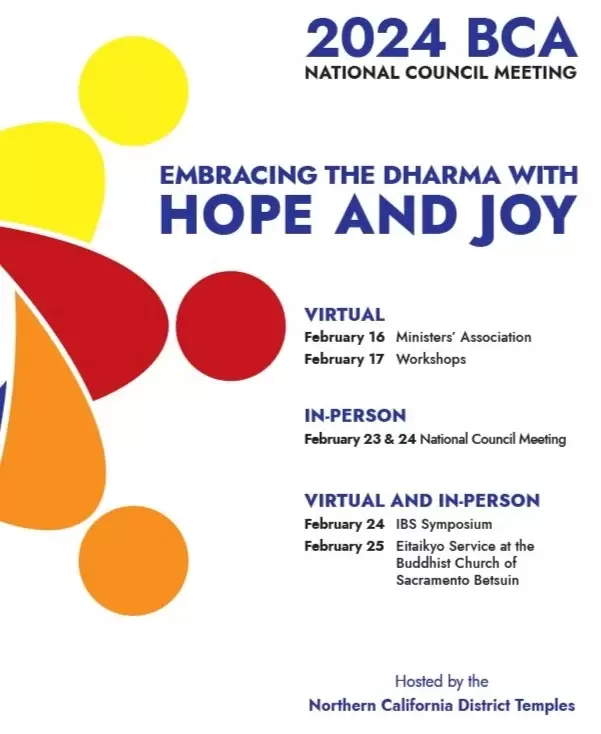I wanted to share a story from Rev. Unno's Notes, Articles and Translations on Shin Buddhism book. I really miss the Sundays where Rev. Unno would sit down with the Dharma School students and have a meaningful and interesting discussion.
"Three Fables and Their Shin Buddhist Lesson"
- First fable: Once a frog and a scorpion were attempting to cross over to the other side of a river. The scorpion turned to the frog and said, "Listen, there's no way I can make it across this river; I'd appreciate it if you would be good enough to let me ride on your back . . .." To which the frog said, "Well, all right, but promise me that you won't sting me." The scorpion, of course, promised not to sting the frog. And so the frog, with scorpion on its back, began to swim to the other side of the river. But in midstream, the scorpion stung the frog, with deadly results. Before they both drowned, the startled frog turned to the scorpion and said, "Hey, you promised that you wouldn't sting me, so why did you do that?" Whereupon, the scorpion said, "Well, I'm a scorpion; that's what I do ...."
- Second fable: A frog had been kissed and turned into a Prince. As the Prince, he and his bride rode off into the sunset. During which, a huge housefly flew by. All of a sudden a long, ribbonlike tongue shot out of the Prince's mouth and snagged that housefly.
- Third fable: A monkey was trained to act in a Kabuki play as a human being. He became so adept at it that the patrons could be heard saying, "Hey, he's just like us; he's almost human ...." This went on for some time, until one day a mischievous patron threw a handful of peanuts onto the stage. Seeing the peanuts, the monkey forgot all about being a human and scampered after the peanuts and shoved them into his mouth, as monkeys will do. The monkey had reverted back to being a monkey.
What we Shin Buddhists might learn from this is that although it's crucial to try to be moral or egoless, etc., in the end, we cannot change our fundamentally egocentric nature. And therefore, ultimately, we can only be saved by a "Power Other Than Our Own" (Tariki," "Other Power") which is none other than the Buddha known as Amida.
Note: All three fables are recounted from memory, of which I can't recall the source. Both the first and second fables might be from Aesop.
Gassho,
Reverend Tetsuo Unno-
Namu Amida Butsu
 RSS Feed
RSS Feed
